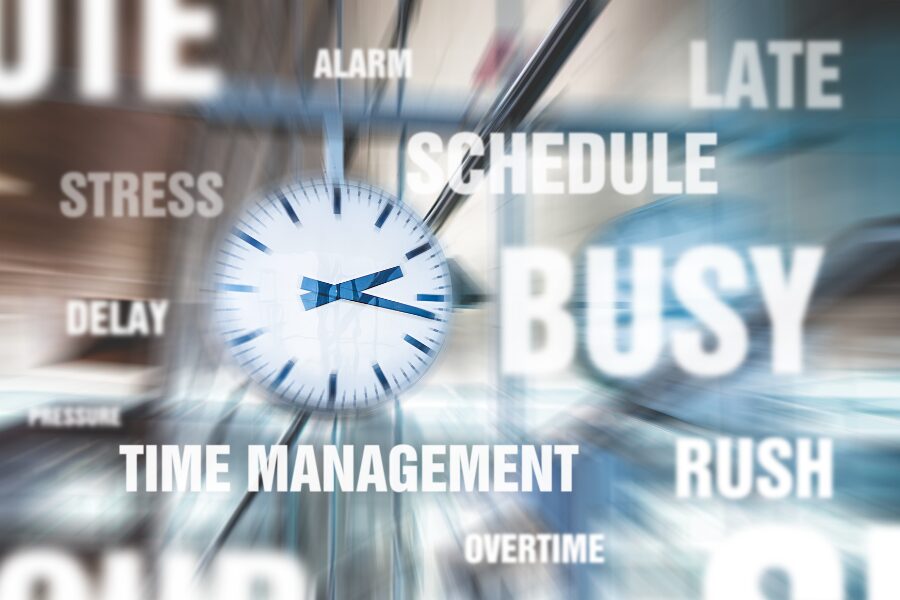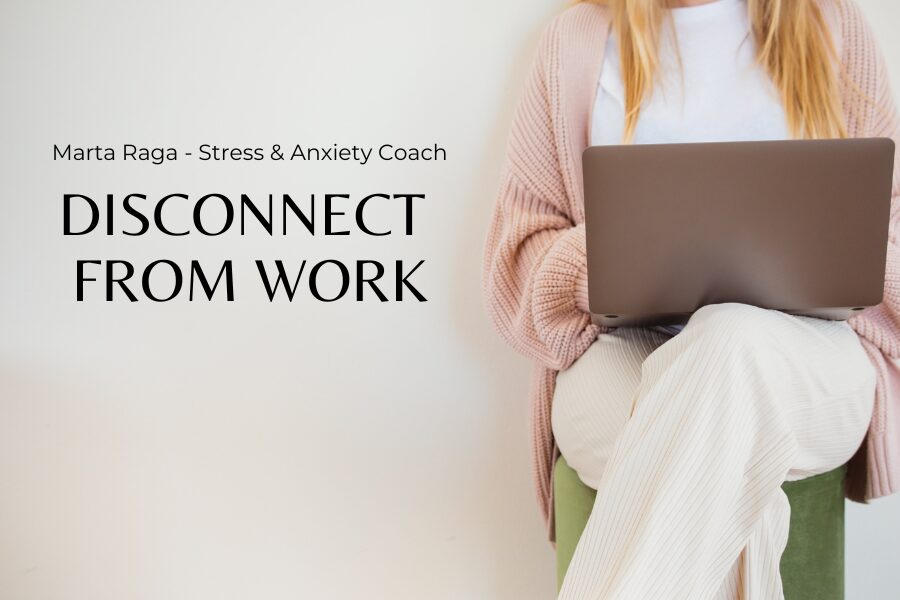Work stress is an unavoidable part of modern life, but when it isn’t managed well, it can have serious effects on both mental and physical health. In my experience coaching executives, I’ve seen firsthand how managing stress effectively can significantly boost productivity and well-being. In this post, I’ll explain how to deal with work stress, recover from it, and share proven strategies backed by research. Whether you’re a manager or employee, learning how to manage stress is key to thriving in today’s workplace.
Signs and Symptoms of Work-Related Stress
What are the signs of stress at work?
Work stress can show up in many ways. Some of the common signs include:
- Physical symptoms: Headaches, muscle tension, fatigue, and digestive problems.
- Emotional symptoms: Irritability, anxiety, lack of motivation, or feeling overwhelmed.
- Behavioral symptoms: Difficulty concentrating, withdrawal from social situations, or a drop in performance.
Recognizing these symptoms early can help you take action before stress escalates into burnout.
According to Gallup, 43% of employees globally report feeling stressed daily, and 32% of workers admit that they aren’t thriving at work due to Causes of Stress at Work.
Why am I feeling stressed at work?
Several factors can contribute to work stress, and they’re often a mix of organizational and personal factors, including:
- Heavy workload: 55% of employees report that workload is their primary cause of stress .
- Larol: Feeling like you have little input into decisions that impact your work.
- Work-life imbalance: Difficulty juggling work responsibilities with personal time.
- Job insecurity: Fear of losing your job or not advancing in your career.
Understanding what’s causing your stress is the first step toward managing it.

How Does Your Body React to Work Stress?
Stress triggers the “fight or flight” response in your body. You might notice symptoms like:
- Increased heart rate and blood pressure
- Muscle tension or pain
- Digestive issues and difficulty sleeping
Long-term exposure to stress hormones like cortisol can lead to chronic health conditions, including cardiovascular disease and weakened immune function.
What Happens if You Encounter Stressful Experiences at Work Every Day?
Can daily work stress lead to burnout?
Yes, daily exposure to stress without proper recovery can lead to burnout, characterized by emotional exhaustion, cynicism, and reduced performance. According to a survey by Deloitte, 77% of professionals have experienced burnout at their current jobs . Burnout not onlyour career but can also have long-term effects on your health.
How do I know if I’m burned out or just stressed?
Burnout is more than just stress—it’s marked by extreme exhaustion, feeling disconnected from work, and reduced performance. If you’re constantly tired, unmotivated, and struggling to perform tasks, burnout might be the issue.
How long does it take to recover from work stress?
Recovery times vary depending on the individual and the level of stress. However, daily recovery activities like micro-breaks, detaching from work, and engaging in hobbies can help prevent stress from building up in the first place.
What are the long-term effects of stress on my health?
Chronic stress affects both mental, emotional and physical well-being.
It can lead to:
- Anxiety and depression
- Sleep disturbances and Digestive issues
- Weakened immune system
Managing stress effectively is crucial for long-term health and happiness.
How Can You Cope with Work Stress?
Here are some practical ways to manage and recover from work stress, with evidence-backed strategies to improve your well-being.
Understanding Stress Recovery
Recovery is the process of restoring your body and mind to their normal, balanced state. It’s essential for maintaining health and productivity over time. Research has shown that the ability to recover from stress reduces the risk of burnout and improves long-term performance .
The Paradox of Recovery
Is it difficult to recover from stress?
The paradox of recovery is that when we need it most—when we’re highly stressed and depleted—it’s hardest to take action. Chronic stress can push you into a negative cycle where rest feels unattainable, and you continue working without breaks. This can lead to further exhaustion, even though what you need most is rest.

Five Ways to Make Recovery Work for You
Here are five proven strategies that can help you recover effectively from work stress:
1. Detach Psychologically from Work
Completely switching off from work is key. Engaging in activities you enjoy—whether it’s exercise, a hobby, or spending time with family—helps your mind disengage from the stressors of the workday. According to studies, employees who mentally detach from work show better recovery and improved engagement the next day .
2. Harness the Power of Micruring the Workday
What are micro-breaks and how can they help?
Micro-breaks are short breaks during your workday, usually about 10 minutes long. These breaks have been shown to reduce stress, improve focus, and boost energy. For example, standing up to stretch, grabbing a healthy snack, or chatting with a colleague can help refresh your mind. A study by the University of Illinois found that micro-breaks increase productivity and reduce mental fatigue .
3. Consider Your Preference for Recovery
Do certain activities help more with recovery?
It’s important to engage in recovery activities that you personally enjoy. Whether it’s reading, hiking, or gardening, choosing something you find fulfilling will make the recovery process more effective. This is why personalizing recovery is key—what works for one person may not work for another.
4. Prioritize High-Effort Recovery Activities
Should I stay active or relax after work?
While passive activities like watching TV can seem like a quick fix for stress, research shows that active recovery—like exercise or learning a new skill—has longer-lasting benefits. Activities that require effort help you replenish energy and develop new skills. In my practice, I’ve seen clients who take up new hobbies like playing an instrument or joining a fitness class report feeling more energized and less stressed.
5. Shape Your Environment for Optimal Recovery
Can changing my surroundings help reduce stress?
Yes!
Your environment plays a crucial role in recovery. Exposure to natural light, plants, or even taking a walk outside can improve mood and reduce stress.
Studies show that spending just 10 minutes in nature can help lower stress levels and improve well-being .

Effective Stres Management goes beyond wellness practices
When these strategies don’t work and stress feels like a constant burden, it might mean that the stress has become chronic. At this stage, wellness practices like micro-breaks or hobbies aren’t enough. You may need to work with a specialist to identify deeper stressors and change the way you perceive and react to stress. Effective stress management goes beyond wellness—it’s about identifying the root causes and reshaping how you interact with those stressors.
If you find yourself stuck in a cycle of stress despite trying these strategies, feel free to reach out. As an Executive Coach, I’ve helped many professionals regain control over their stress, allowing them to thrive at work and in life.
Let’s work together to develop a tailored plan that helps you break free from chronic stress and boosts your well-being.
Book your complementary session: https://bit.ly/47QTFyj
Together, we can identify the root causes of your stressors and create a personalized plan to enhance your mental resilience.
To your Well-being
By Marta Raga, Executive & Life Coach Specializing in Stress Management








0 Comments